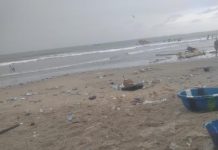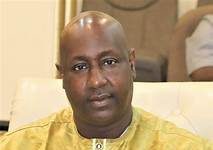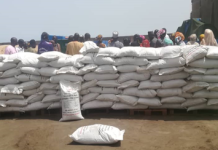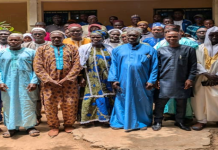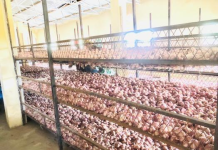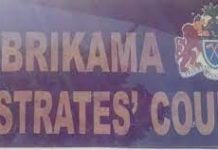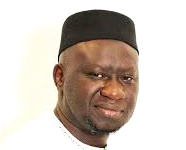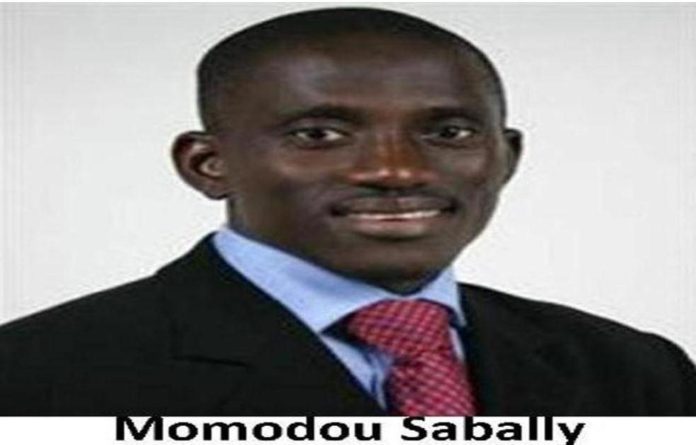By Yankuba Jallow
Momodou Sabally, an erstwhile Secretary General and Head of Civil Service in The Gambia and Ansumana Jammeh, a younger brother to former President Yahya A.J.J. Jammeh will both appear before the Gambia Court Appeal today.
The duo has appealed against the Janneh Commission adverse findings against them.
Momodou Sabally was found to be involved in many of former President Yahya A.J.J. Jammeh’s financial transactions which were not part of his duties, especially as a Secretary General. The Commission found out that his conduct fell far short of the standard of professional conduct expected of the Head of Civil Services at the time.
The economist, who acceded to the position of Secretary General, was found to be a signatory to various public accounts and was involved in the withdrawal of large sums of public funds (some of which were not accounted for) on the instruction of former President Jammeh.
Momodou Sabally and former President Jammeh were jointly and severally liable for the same amounts of money misappropriated by former President Jammeh.
The defunct Janneh Commission recommended for the former civil servant turned politician to be banned from holding any public office for the remainder of his life. Saballly is a former Director of Budget at the Ministry of Finance for three years and served as the Acting Secretary General in 2013 before his subsequent confirmation as Secretary General and Minister for Presidential Affairs in the same year. His service was terminated in June 2014. The Commission also recommended for Sabally’s ban from becoming director of State Owned Enterprises. The Gambia Government accepted both recommendations.
Ansumana Jammeh, a younger brother to former President Jammeh was also involved in former President Jammeh’s business dealings, as per the Janneh Commission report.
According to the report by the defunct commission, Ansumana Jammeh was the Executive Director of Jammeh Foundation for Peace from 2006 to 2008. From 2008 to 2014, he was the Gambian Ambassador to Qatar. He was Managing Director of Alhamdulillah Petroleum Company (APAM) Sand Mining Business in Kartong and Brufut, from July 2015 to November 2015.
The Commission found, inter alia, Ansumana Jammeh introduced Qatari businessman Soaud Ghandour and Rashid Ghandour the owners of Conapro and shareholders in GFFI. In May 2016, he was prosecuted for economic crimes, and he pleaded guilty to abuse of office, official corruption, conspiracy and economic crimes. A fine of D24,647,028 was imposed on him. In addition, Mr. Ansumana Jammeh’s properties located at Bijilo bearing Serial Registration no.K579/2009, and at old Yundum bearing Serial Registration no.K336/2010 and his vehicle worth D1,000,000 were forfeited to the State. However, the Commission found that this Judgment has not been executed.
Ansumana Jammeh is challenging the jurisdiction of the Janneh Commission at the Gambia Court Appeal.
Mr. Jammeh is dissatisfied with the adverse findings of the Janneh Commission of Inquiry dated 29th March 2019 against him and thus filed an appeal before the Court of Appeal for determination. The former Gambia Ambassador to Qatar wants the Court of Appeal to issue an order setting aside the adverse findings made by the Commission of Inquiry against him.
The Attorney General has opposed the claim saying the relief sought is an attempt to delay the processes of executing the findings of the Commission. The State argued that the properties belong to the State via a high court judgment dated 13th June 2016. He is arguing that if the reliefs sought are granted, it will prejudice their case.
The State on the 12th May 2016 filed criminal charges against the appellant, a former Ambassador to Qatar. The criminal complaint alleged that the appellant engaged in a scheme to defraud the Government of the Gambia (GOTG) – the appellant is said to have assisted CONAPRO to get the contract to supply fuel to the Gambia and he (Mr. Saoud Ghandour) will make him (Ansumana Jammeh) happy. The criminal complaint further alleged that Mr. Jammeh used his position within the government to obtain information to assist CONAPRO to formulate a proposal for an oil supply contract, particularly in construction with “premium circulations”. Payment totalling over $1.5 million was paid from June 2010 to January 2011 to Ansumana Jammeh through one of his businesses, Maligam International Import and Export by Mr. Saoud Ghandour. Monies were subsequently withdrawn and spent on items including a Lexus RX3 vehicle for the benefit of Ansumana Jammeh.
Mr. Jammeh pleaded guilty to abuse of office, official corruption, receiving property to show favour, and conspiracy and economic crimes. A fine of D24,647,028 was imposed on him. In addition, his properties in Bijilo and Old Yundum as well as his vehicle worth D1,000,000 were forfeited to the State.
The Janneh Commission held that the judgment has not been executed adding that it must be executed by Sherriff of the High Court in accordance with the law.
On APAM, Ansumana Jammeh confirmed to the Janneh Commission that he was involved in the licensing of APAM and signed the license for APAM’s sand mining activities.
The Commission found that APAM for all intent and purpose was operating illegally because it was an illegal entity created by ex-President Jammeh to exploit and steal the country’s mineral resources and thereby clinch himself with impunity. The Commission held the former President and all the managers of APAM liable for the unlawful sand and mineral mining activities.
Ansumana Jammeh managed APAM from August 2015 to November 2015 and generated revenue of D10,268,000. He then paid D600,000 to KGI.
The Commission held that the sum of D600,000 paid to KGI by Ansumana Jammeh from APAM funds should be recovered at first instance from KGI and failing which it should be recovered from Ansumana Jammeh’s assets.
Aggrieved with the findings of the Janneh Commission, Jammeh is arguing that the Commission of Inquiry erred in law by acting in excess of its jurisdiction by looking into the CONAPRO and GFFI issues. According to the particulars, the appellant was convicted by a superior court of co-ordinate status and jurisdiction in respect of the same subject matter. The Commission was therefore estopped from inquiry and adjudicatory in respect of the same subject matter.
On the second ground of appeal, he claimed that the Commission violated section 24(1)(b) of the Constitution by making adverse findings against him in the absence of his testimony in respect of the CONAPRO and GFFI issue before the Commission. According to the particulars of the appeal, Jammeh said he was never asked about and no testimony was given under oath by him before the Commission in relation to the CONAPRO issue.
He said the Commission merely relied on his witness statement provided to it by the police – the content of which was not examined in the testimony of the appellant before the Commission. He said the Commission denied him the fundamental right to a fair and impartial hearing as guaranteed by the Constitution.
On the third ground of appeal, Jammeh contended that the Commission erred both in law and in fact when it held that the appellant is liable to pay the sum of D600,000. According to the particulars, Jammeh said he was neither a director nor a shareholder in KGI and APAM, adding that he was merely acting as a manager of APAM and was simply acting on instruction as an employee. He said he is not liable under section 603 of the Companies Act 2013 and section 44 of the Single Window Business Registration Act 2013. He added that the liabilities of Toni Ghattas and Woreh Njie Ceesay could not be shifted onto him. He said the liabilities of APAM and KGI should be tied to their respective directors and or shareholders and not employees like the appellant.
On ground 4, Jammeh said the Commission erred in law in making an adverse order against him without making adverse findings against him in respect of APAM’s D600,000 payment to KGI. According to the particulars, he claimed that the Commission in its report held Toni Ghattas and Woreh Njie Ceesay jointly and severally liable and not the appellant, yet make adverse findings against him.
On the final ground of appeal, Jammeh said the adverse findings of the Commission against him are against the weight of evidence. According to the particulars, he is claiming that the evidence against him as a whole is weak and insufficient for the Commission to rely upon to make adverse findings against him.
Read our subsequent publication for more on these two cases




